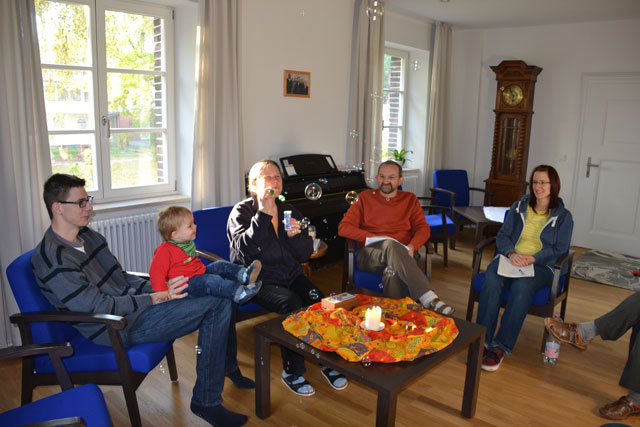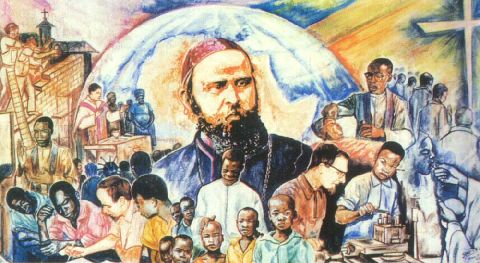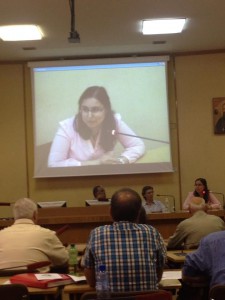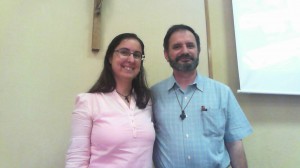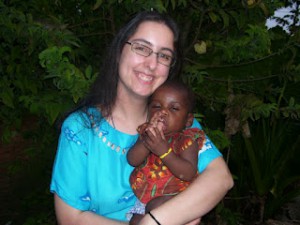 From an early age I wanted to be as close as possible to those who have nothing, and above all, be one with them, to become a bridge between the poorest of the poor and their local authorities and of course between them and Europe.
From an early age I wanted to be as close as possible to those who have nothing, and above all, be one with them, to become a bridge between the poorest of the poor and their local authorities and of course between them and Europe.
I remember when I left at 24, on a mission to the Central African Republic had no idea what to expect. I just knew that God was calling me and the heart of Africa needed me as much as I needed it.
In this sense, the formation of Comboni Lay Missionaries (CLM) was very important and helped me to confirm my vocation as a lay missionary and with the charism of Comboni. At that time I loved Africa, and did not conceive the idea of ”happiness” without actively strive for a happier, more just and true world. Today, after five years spent in the heart of Africa, I can say that the donation to Mission brings me more than happiness, brings me the meaning of life, the strength and hope in the new morning and, above all, I feel the love and presence of God more than ever, after all, being among the poorest in the world, I am among the most beloved people of God.
Forgotten by men
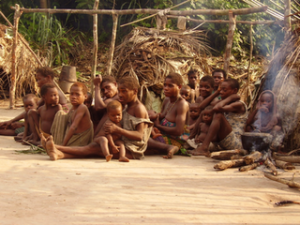 In Central African Republic, this country forgotten by men and loved by God, I joined what was the first international CLM community: Mongoumba, in the forest, living and working with Pygmies and Bantus (not pygmies’ population).
In Central African Republic, this country forgotten by men and loved by God, I joined what was the first international CLM community: Mongoumba, in the forest, living and working with Pygmies and Bantus (not pygmies’ population).
One of my daily struggles was the fight so that increasing deforestation ended. Indeed, if logging continues, soon will no longer exist in the region Pygmies; and Bantus, who live in the villages, will become cheap labor for those who want to exploit the region.
Currently, due to this situation, the Pygmies and non-Pygmies have been forced to live too close and, of course, the culture shock arise – for which no one was prepared and came by the interests of the European woods companies. This has made that Pygmies live in a state of slavery and total social exclusion. To work against this social exclusion, the mission has created and manages six schools for the integration of the pygmies. The schools are scattered throughout the jungle in a radius of about 60 km. We try, from a specific method, that the Pygmy children attend the early years of primary education and then be better integrated into public schools.
Other problems, abounding here, have to deal with health. To the extent that the Pygmies live in the jungle, and because it is being destroyed, opens a path of starvation and disease. On one hand we find hunger, because trees, which are the staple diet, are slaughtered. On the other hand, health, diseases increase because trees and medicinal plants used in traditional medicine begin to be hard to find. In this sense, and in order to help integration of the Pygmies in the public health system, the mission runs a health clinic. This is especially directed to the Pygmies and the poorest of the village. Here we pass no consultation, only serves as a bridge between patients and the public health center, in addition to providing the support necessary for taking medication. We work with a nurse-Central African lifeguard that helps us control that patients take the right medicines and make health awareness in the pygmies’ camps.
In this area, the struggles are more than everyday: are every minute! At all times we are facing serious medical errors in the public health center, which is resultant from both ignorance and negligence of those who work there, as well as discrimination and lack of awareness of the importance and value of life.
In this sense, there are days that this health center seems to produce more death than life. So when deaths occur “without having to occur”, brings us to the fights that sometimes end up in court and sometimes in the Ministry of Health.
Giving voice
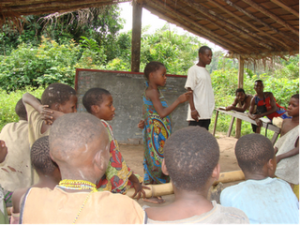 Looking at these people – Pygmies and Bantu – one realizes that they are simply victims of the global corruption that helps Central African Government to be more concerned about arms supplies than to health and education. How can we, in this context, paddle upstream? It is certainly no easy task, but does not discourage us. However, makes us fight for life and true freedom in this country, theoretically independent, that continues to suffer daily abuses of colonization.
Looking at these people – Pygmies and Bantu – one realizes that they are simply victims of the global corruption that helps Central African Government to be more concerned about arms supplies than to health and education. How can we, in this context, paddle upstream? It is certainly no easy task, but does not discourage us. However, makes us fight for life and true freedom in this country, theoretically independent, that continues to suffer daily abuses of colonization.
Today, this CLM community here counts with the help of the Comboni Missionaries and the Secular Comboni Missionaries. Within this Comboni Family, and working from the apostolic community, we develop projects in different areas trying, by the witness of life; announce the One who sends us to the Mission.
In fact, the mission in all parts of the World needs life testimonies that are keys to the liberation of the people. Today, in the mission, the challenge is not to “do something for others,” but “to be someone with others”. Prayer without action is useless and far from Gospel values.
Today, the mission challenges us to live according to the values we stand for and for a World where everyone, without exception, are considered, in fact, sons of God, so that in Him may encounter life in abundance.
Susana Vilas Boas CLM
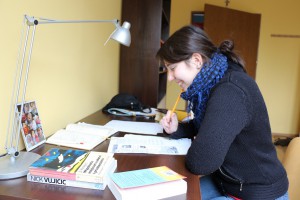 From the beginning of October I started community experience in Kraków. This is the last part of the formation before going on missions (because in January I’m going to Ethiopia!). During these two months there are a lot of things which I experience – life in the community (in theory – through the formation meetings and reading, as well as a practical through living in the community of MCCJ), except that there are a lot of learning:
From the beginning of October I started community experience in Kraków. This is the last part of the formation before going on missions (because in January I’m going to Ethiopia!). During these two months there are a lot of things which I experience – life in the community (in theory – through the formation meetings and reading, as well as a practical through living in the community of MCCJ), except that there are a lot of learning:



